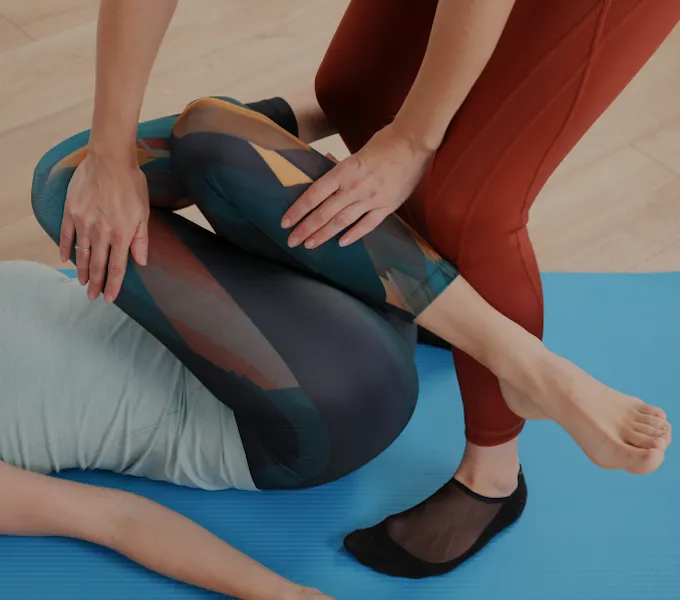
Peeing Frequently at Night? Follow This 4-Step Plan
The only thing more annoying than being woken up by your bladder when you were finally getting a (literal) dream shot with your high school crush, is when your bladder wakes you up a second or even third time. If you chugged a Stanley Tumbler full of water right before bed, that would make sense, but when it happens night after night, it’s a signal that something is off.
What many people who get up multiple times at night may not know is that this kind of urinary frequency, also known as nocturia (yes it sounds like the name of a Netflix sci-fi series), can be a symptom of several different underlying medical conditions.
Read on to learn what you need to know, including some simple adjustments that you can make to ease your bladder symptoms at night.
What is nocturia?
Nocturia is the medical term for having to wake up at night to empty your bladder. For most people, it’s considered abnormal if you have to wake up more than once per night to pee. With nocturia, trips to the bathroom are sandwiched by stretches of sleep. So if you're tracking episodes of nocturia, you shouldn't count peeing right before bed or first thing in the morning after your alarm goes off.
Nocturia is very common, affecting 1 in 3 people. Although it can happen to anyone at any age, it’s more commonly reported by people over the age of 65.
Should I be worried if I pee frequently at night?
Waking more than once a night to empty your bladder is considered a symptom of an underlying health condition, which is why it is important to check in with your healthcare provider if this is a new issue for you.
Plus, if you are frequently getting up throughout the night, you’ll be missing out on quality sleep that could contribute to a variety of long term and short term health consequences including:
- Mood disturbances and emotional distress
- Memory, cognition, and mental performance issues
- Increased sensitivity to daily stress
- Cardiorespiratory and metabolic issues
- Increased risk of certain cancers
Why do I have to pee so often at night?
Nocturia can be caused by poor bladder habits including:
- Drinking too much water, or intaking bladder irritants right before bed.
- A habit of voiding too frequently during the day which can cause your bladder to be more sensitive to filling during the day and night.
When not caused by a specific lifestyle habit, these underlying medical disease or health conditions can contribute to nocturia:
- Diabetes or other conditions or medications that cause urine overproduction
- Cardiovascular disease including high blood pressure
- Bladder stones, bladder inflammation, other other bladder conditions that impact its function including painful bladder syndrome/interstitial cystitis
- Restless leg syndrome
- Swelling in your legs
- Pelvic organ prolapse
- Injury from childbirth
- Menopause
Your 4-step plan to help ease nocturia:
When new bladder symptoms such as getting up too frequently throughout the night to pee pop up, it is always best to check in with your healthcare provider. While these symptoms can certainly be caused by poor bladder habits, there is a chance that an underlying disease or health condition could be causing your symptoms.
While you wait to check in with your healthcare provider, try these strategies to ease nocturia:
- Limit what you eat or drink in the 2 hours before bed. Focus on getting the water your body needs throughout the day (vs “catching up” before bed) and make sure that what you are drinking isn’t irritating to your bladder.
- Try to avoid going “just in case,” including before bed. This is a problematic bladder habit that can eventually impair your ability to fully empty your bladder.
- Improve your sleep hygiene. A good sleep can go a long way to support your bladder health. Try heading to bed and waking at consistent times, limiting caffeine and alcohol at night, and creating an optimal sleep environment with a cool, dark room, and plenty of soothing white noise.
- Retrain your bladder with the help of a pelvic floor physical therapist. Retraining will increase your bladder control during the day and night — so that you can pee at the appropriate times and hold it whenever you need to.




